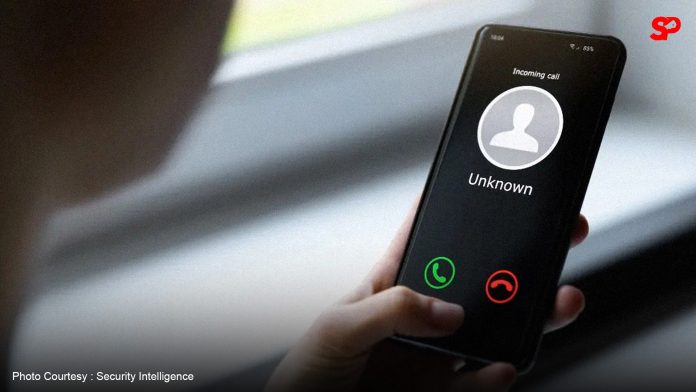MANILA – There were over 6 million scam texts and over 600,000 scam calls recorded in the Philippines last year, with data showing that these fraudulent communications increase per quarter.
In a media briefing Wednesday by the Cybercrime Investigation and Coordinating Center (CICC) and trust-tech firm Gogolook, Gogolook country head Mel Migriño said the figures were based on data collected through its Whoscall mobile app.
In total, the Whoscall app recorded 6,157,517 scam SMS and 610,688 scam calls in the Philippines last year.
Data showed that these scam calls increased as time progressed, with Whoscall logging 108,157 calls in the first quarter of 2024, increasing to 135,535 by the second quarter, 165,236 by the third quarter, and 201,760 by the fourth quarter.
SMS scams also increased, logging 1,143,268 during the first quarter, 1,288,811 by the second quarter, 1,645,470 by the third quarter, and 2,079,968 by the fourth quarter of last year.
From these fraudulent text messages, Whoscall recorded 16,553 risky internet links, the majority of which were invitations to register for online services, promotions, insurance, game memberships, financial services, loans, and rewards.
Other top dangerous links were online shopping scams, suspicious payment requests, and employment-related scams.
In the same briefing, CICC Executive Director, Undersecretary Alexander Ramos, said the fraudulent texts and calls are often the beginning of scam attacks.
In response, he said any messages containing links or other attachments have been banned from being sent by financial technology companies (fintech), telecommunications companies (telcos), and other relevant parties.
“[We have] continuous announcements together with fintech and telcos, that no telco or fintech are sending messages with attachments. Pinagbawal na yan (We have banned that) as a policy. They will only give you a message on what to do, not click a link,” Ramos said.
Aside from the use of fake cell towers that push these scam SMS directly to people’s phones, he said, another major source of these scams is social media platforms.
He called on the government to pass a law or an amendment that would address the issue of scams from social media platforms, similar to how the SIM Registration Act has enabled the CICC and other law enforcement units to trace scams that utilize SIM cards.
“With the SIM card registration, we already know who to run after. Unlike before na wala (that there’s none). With the SIM card registration, we were able to reduce the number of vulnerabilities in the process,” he added. (PNA)

